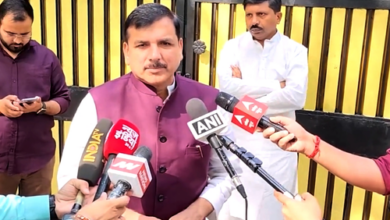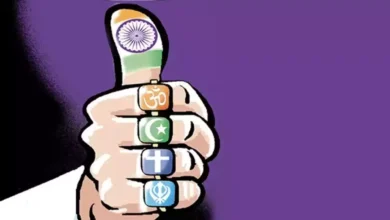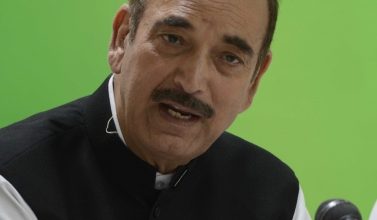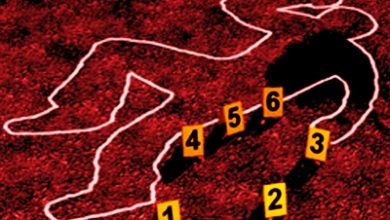Four Years of Pulwama terror attack; Timeline Of How Events Unfolded That Day

India considers February 14 to be a “black day” due to the Pulwama attacks in which 40 CRPF bravehearts were killed in one of the deadliest attacks on Indian security forces.
14th February, 2019 marks the fourth anniversary of one of the most deadly terror attacks that killed 40 Central Reserve Police Force (CRPF) personnel in Jammu and Kashmir’s Pulwama. Adil Ahmad Dar, a 22-year-old suicide bomber, drove a Maruti Eeco down one of the alleyways and onto the highway before ramming the IED-laden vehicle into the CRPF convoy. Up to 40 troops died when the bus exploded, turning it into a twisted pile of metal. This was the biggest terror attack Kashmir valley had witnessed in the last three decades.
Leaving the video message of ‘Don’t fall in love’, a brainwashed youth rammed up an explosive laden vehicle into a CRPF convoy killing 40 CRPF personnel in Jammu and Kashmir on Valentine’s Day on February 14, 2019.
Here’s a timeline of the Pulwama terror attack:
14 February 2019
A suicide bomber targeted the two buses in which forty members of the CRPF were traveling in Jammu and Kashmir. In the Pulwama district of south Kashmir, the buses were part of a larger group of paramilitary vehicles traveling along the highway. JeM released a video shortly after the attack in which they claimed responsibility. The suicide bomber claimed to be Adil Ahmad Dar, a local Kashmiri jihadist who lived in Gundibagh, Kakapora, in the Pulwama district of south Kashmir.
15 February 2019
In a press release on February 15, 2019, MEA accused Pakistan of supporting terrorism. It stated that Masood Azhar, the JeM’s leader, has been granted complete freedom to operate and expand his terror infrastructure in Pakistani-controlled areas and carry out attacks in India and elsewhere without fear of reprisals. Pakistan denied India’s claims that it participated in the Pulwama attack. China maintained that Masood Azhar did not belong to a terrorist organization. Prime Minister Narendra Modi said that those responsible will pay “a very heavy price” and that security forces will be given free rein to deal with terrorists, warning Pakistan that it cannot weaken India by orchestrating such attacks. Curfews were enforced in Jammu as a precaution following protests over the Pulwama terror attack. Law and order were upheld by the deployment of military forces.
16 February 2019
Political parties unanimously passed a resolution to support the security forces, shortly after which customs duty on all Pakistani goods was increased to 200 percent. – At least seven people were detained from Pulwama with alleged connections with JeM. India launched a diplomatic offensive against Pakistan. As India raised the stakes, Pakistan’s foreign minister offered assurances that his country was ready to work with India to identify the perpetrators of the deadly attack if Pakistan was willing to share evidence of Pakistan’s involvement
Indo-Pak Ties Deteriorate
Relations between India and Pakistan deteriorate as a result of the attack. India took away Pakistan’s status as its most preferred nation and increased the customs duty on all Pakistani goods imported into India to 20%. Pakistan should be added to the Financial Action Task Force on Money Laundering (FATF) blacklist, according to India’s government. The Jammu and Kashmir administration ended security measures for separatist leaders on February 17.
26 February 2019
In the early hours of the morning, Indian Air Force jets bombed the JeM camp in Balakot, Pakistan’s Khyber Pakhtunkhwa, twelve days after they struck the CRPF convoy. Since the 1971 Indo-Pakistani War, this was the first time an attack plane had crossed the Line of Control. Twelve Mirage 2000 aircraft were involved in the operation, according to reports. An operation to drop 1,000-kilogram bombs on Jaish-e-Mohammad camps in Pakistan and across the Line of Control was carried out, according to reports. The JeM camp in Pakistan’s Balakot sector was said to have been “completely destroyed” as a result of the operation.
27 February 2019
Pakistani F-16s entered Indian airspace on February 27, 2019. They were said to be targeting Indian military facilities, according to reports. One F-16 aircraft and two Indian MiG-21 Bisons were destroyed. Pakistan claimed to have taken two pilots from the IAF. Later, it changed its statement to say that Pakistan only had custody of one IAF pilot. Wing Commander Abhinandan, a captured IAF pilot, was captured on video by Pakistan. MEA confirmed the absence of one IAF pilot from action.
28 February 2019
Imran Khan made the announcement on February 28 that Pakistan would release Wing Commander Abhinandan, a captured IAF pilot, on Friday. At a press conference, the chiefs of three services showed evidence that Pakistani F-16s were used against India in an airstrike on February 27.








